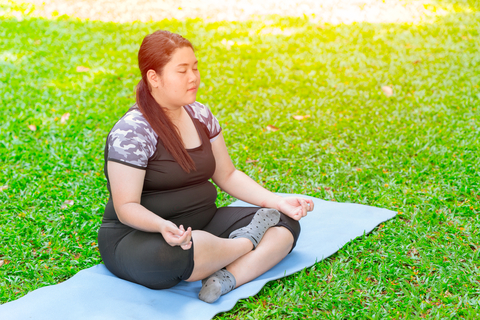Our last blog post talked about what compassion fatigue is and how it compares to PTSD and burnout. It did not, however, answer questions about how you heal from it. Instead, this post will explore 5 tips for healing compassion fatigue. These tips can be used in addition to counseling. And some people can even heal compassion fatigue without counseling by using these tips.
Don't Rely on Alcohol

When coping with intrusive memories or thoughts, alcohol seems like an easy escape. It seems like one of the few options to actually quiet your mind so you can have peace. But that peace is temporary. In fact, using alcohol helps maintain those intrusive thoughts and memories through your avoidance of them.
Your avoidance of the memories prevents any real processing. That then maintains beliefs about you, your patients, or the events that are inaccurate. For example, if you start drinking rather than facing your memories of a sexual assault, you might maintain a belief that “all men are dangerous.” Facing those memories instead might help you get to a point that “some men are dangerous” instead.
If you have already been drinking regularly, do not stop drinking on your own. Seek the assistance of a medical provider who can guide you on appropriate detox procedures. Abrupt withdrawal from alcohol can be dangerous, resulting in seizures, hallucinations, or, in the worst cases, death.
Use Your Support System
Healing compassion fatigue isn’t going to be easy. You will need the support of people around you. Decide on at least 3 people that you can turn to when you need a little extra support. Even if 1 of those people only serves as someone to do fun activities with, that’s okay too.
Remember, you don’t have to share everything with everyone in your support system. For example, you may know that your significant other is the most supportive when it comes to some things. But he may not be as supportive when it comes to emotional things. It’s okay, then, to rely on others for the emotional support and your husband for the things he does well.
As healthcare providers, we often feel like HIPAA prevents us from getting support from friends and family about our patients or clients. Like we can’t go home and say, “you know what, I had a guy who shot himself and he really reminded me a lot of you. I’m really struggling with those mental images right now.” Of course, there is a time and a place for those discussions. The middle of a crowded restaurant probably isn’t the best place. But we are not prohibited from sharing with our closest supporters how those we help are affecting us in a way that still protects the identity of those we are helping.
Ask for Peer Support
Another key factor to help you heal from compassion fatigue is peer support. Peer support uses others who live and breath your work to help you through the highs and lows of the job. Peer support consists of both group and individual support.
While peer support can offer referrals to therapists when needed, they also listen. Sometimes, you experience relief from sharing your experiences with others who listen and truly understand what you’ve experienced.
Peer support may be a formal program through your employer. Or you may connect with peers who will support you on your own. For example, therapists in private practice may choose to create their own peer support group. Nurses may have a few other nurses who they check in with regularly.
Show Yourself Kindness
As helpers, we show kindness to everyone around us. But we struggle when it comes to showing ourselves the same kindness. We rip ourselves to shreds for any little thing. “I should have done more.” “I’m not good enough.” “I’m such a worthless piece of shit.” We would never let anyone say such hurtful things to our patients. But we don’t show ourselves the same courtesy.

The unkindness also shows up in the way you treat yourself also. For example, you might berate yourself for taking a break. Expecting yourself to continue working through exhaustion. You might refuse to engage in self-care or do things to help yourself. Because somehow, you’ve convinced yourself that you don’t deserve those things while your patient/client struggles.
Start correcting yourself when you notice you are being unkind towards yourself. If necessary, actually say “stop” out loud. Then counter whatever unkindness you’ve shown yourself. For example, you might say “I did everything I could.”
Healing Compassion Fatigue With Yoga
Memories and experiences become stored in different areas of the body. Any of your senses then bring back these body based reminders. While talk therapy can change your thinking about your experiences, that doesn’t help your body forget.

Yoga helps your body release those memories where they’re stored in your body. It also trains your body to control your nervous system responses. Rather than being in fight or flight most of the time, you can train your body to relax.
In fact, regular yoga practice helps you feel less jumpy. It helps you get to sleep faster, and you might even have better sleep as you body is calmer overall.
Remember, yoga does not require you to have flexibility or previous experience. Instead, do what you can do and adapt your practice to your capabilities. If you have an interest in using yoga to treat trauma, sign up for updates by email (in the right bar) as Earthsong Counseling, PLLC plans to add Yoga for Trauma groups starting in Fall 2022.
Final Thoughts: Healing Compassion Fatigue
Counseling heals compassion fatigue. But it’s not the only option for healing compassion fatigue. Instead, you can choose to combine multiple of these tips here with counseling or use these things instead of counseling. Ultimately, the goal is to find the things that work best for you and your healing process.





